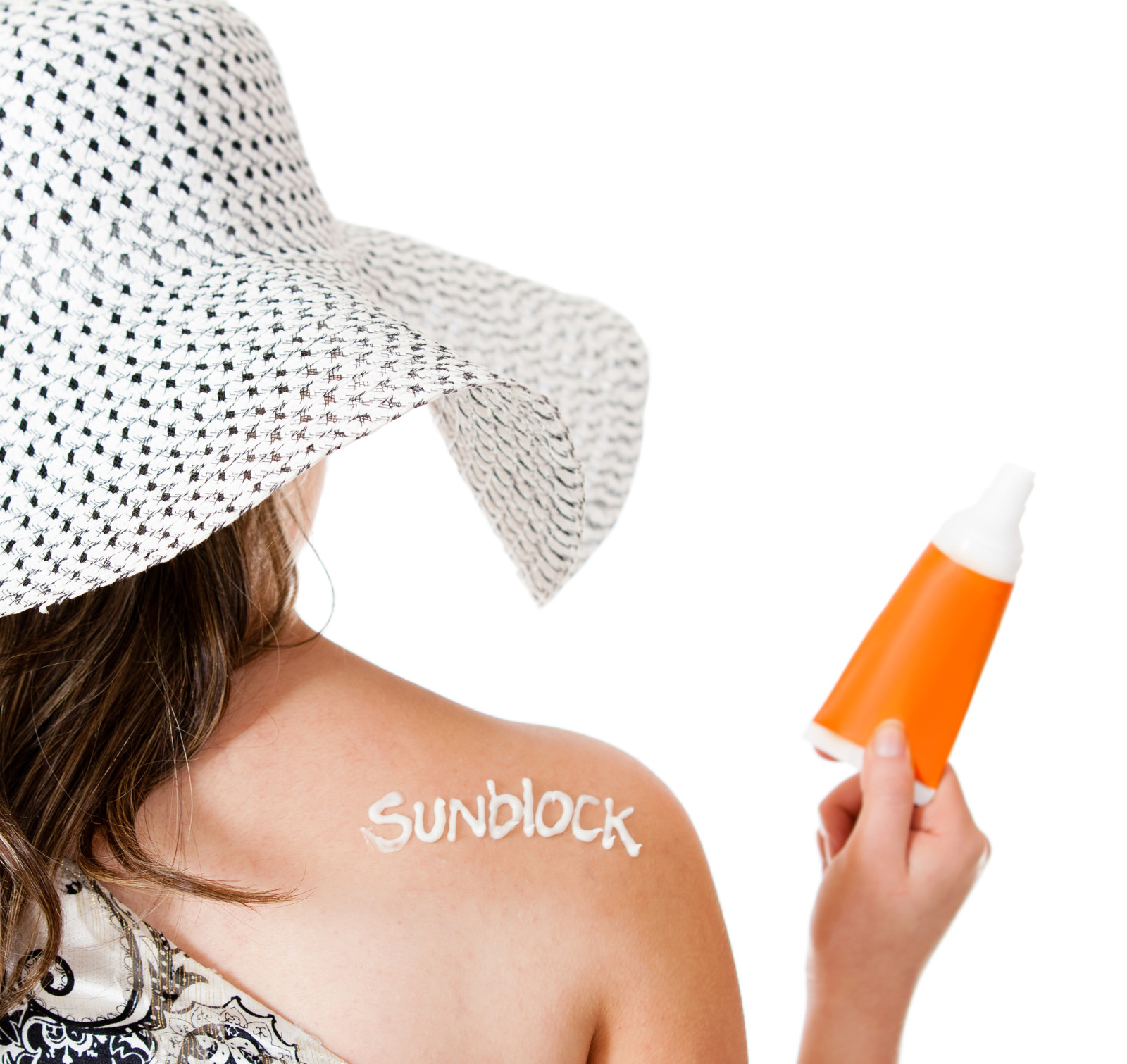Best Sunblock
How does one possibly decide on what is the best sunblock to use when there are so many anomalies involved?
 How to choose the Best Sunblock?
How to choose the Best Sunblock?Walking into any store that sells sunblocks and being confronted with such a huge variety can be very confusing.
I believe there are 3 key aspects to consider when choosing ...
- Know your skin type
- Know how to choose protection at the right level against both UVA and UVB rays
- Choose a sunblock as natural and organic as possible
Best Sunblock for your Skin Type?
 Different skin types affect choice of sunblock
Different skin types affect choice of sunblockHow susceptible is your skin to sun damage and related conditions like age spots, liver spots and skin cancers?
Your natural skin color has a significant bearing on how much natural protection it gives you from the sun and therefore on deciding what is the best sunblock for you. eg. A very dark skin will provide about 30 times the natural protection that a classic pale skin provides.
The following 6 skin types were described after extensive observations by Dr. Thomas B. Fitzpatrick of Harvard medical school in 1975 and are still very valid amongst the variety of classifications used today:
- Skin Type 1.
Highly sensitive to the sun, almost always burning, never tanning.
Usually very pale white skin, or highly freckled or albino.
People with red or blond hair and blue/hazel eyes are usually classified a type 1 - Skin Type 2.
Very sensitive to the sun, will easily burn, very little if any tanning.
Most people with fair skin and blue eyes are a type 2 - Skin Type 3.
Usually sensitive to the sun, sometimes burning, slow tan that becomes a light brown.
Skin usually a darker shade of white or pale olive tone. - Skin Type 4.
Minimally sensitive to the sun, usually have minimal sun burning, will tan to a medium brown.
Skin usually light brown or olive in color. - Skin Type 5.
Usually not sensitive to the sun, will very rarely get sun burns, will tan very well to a medium or dark brown.
Skin color is medium brown to brown in color. - Skin Type 6.
Not sensitive to the sun at all, never gets sunburnt, skin will turn a darker brown when exposed to sun.
Skin has a very dark pigmentation.
UVA and UVB protection
From a labeling point of view, much lobbying by various bodies has been done against the term 'sunblock' being used, as it implies the sun's rays will be blocked completely.
The same logic is applied to arguing against 'waterproof' and 'all-day protection' labels, both of which should not be interpreted literally.
So, it is best to assume that the best sunblock for you can only offer the protection it has been certified for and will never block out the sun completely.
SPF (sun protection factor) certification is recognised globally, informing you what sun protection is offered against the UVB rays.
There are a variety of certifications for UVA rays, which include Boots Star, UVA-PF (PPD) (Persistent Pigment Darkening), Critical Wavelength or UVA/UVB ratio and Australian Standard.
SPF measures the length of time a product protects against skin reddening from UVB, compared to how long the skin takes to redden without protection. If it takes 20 minutes without protection to begin reddening, using an SPF 15 sunscreen theoretically prevents reddening 15 times longer - about 5 hours. But remember, it may take up to 24 hours after sun exposure for the redness to become visible. To maintain the effectiveness of the SPF, reapply the best sunblock for you every two hours and immediately after swimming or sweating a lot.
The Skin Cancer Foundation recommends SPF's of at least 15, which block 93 percent of UVB. While SPF's higher than 30 block only 4 percent more UVB, they may be the better choice of sunblock for sun-sensitive individuals. However, please make note that even a sunblock of SPF 100 does not block out the sun completely.
UVA certifications vary. Boots Star is quite simple in that protection is certified from 1 star to 5 star, where 5 Star provides the best coverage. It is based on the UVA/UVB-ratio as illustrated below:
 Boots Star chart
Boots Star chartCan "natural, organic" provide the best sunblock?
 Make sure to choose a healthy sunblock
Make sure to choose a healthy sunblockBeing exposed to the sun is not just about sun tanning, as so many of us today look for some good time outdoors either for leisure purposes or sport, or even in our work.
Sunblock manufacturers are typically not going to lecture you on whether or not sun tanning, or being outdoors exposed to the sun, is a healthy practice or not.
Being in the sun in a healthy way or not, is a choice.
One needs to become aware of and wary of an increasing number of suspected carcinogens as well as endocrine disruptors present in many popular sunscreens or sunblocks.
Carcinogens - are substances capable of causing cancer in living tissue
Endocrine disruptors - are synthetic chemicals suspected of causing declining sperm counts and cancer of the testicles, prostate, and breast
Suspected Carcinogens:
- diethanolamine and related ingredients (DEA, TEA)
- padimate-o
- cinnamates
- titanium dioxide
Suspected Endocrine Disruptors:
- benzophenone (oxybenzone)
- homosalate
- octyl-methoxycinnamate (octinoxate)
- parabens (methyl, ethyl, butyl, propyl)
It is also of interest to note that while these are suspected of being extremely toxic to people, they are also suspected of being harmful to the environment when we swim, as the chemicals then enter the water. eg. Diethanolamine has been found in waterways, and benzophenone has been found in the water, air and soil.
In addition, one needs to be aware that some sunscreens can create skin irritations. The ones to avoid if your skin reacts negatively:
- avobenzone
- benzophenone
- octyl-methoxycinnamate
- PABA (para-aminobenzoic acid)
If we acknowledge that it is extremely difficult for there to be legislation for absolutely everything, is it not beneficial to take the ownership upon oneself to become well informed and do your own sleuth work to understand what is healthy or not healthy to put on your body?
In other words - choose the best sunblock for yourself after you've become better informed.
Choose a sunblock containing a physical, mineral sunscreen of Zinc Oxide and no other chemical sunscreens, together with wholesome natural, organic ingredients for the rest of the ingredients, to provide you with the healthiest option.



